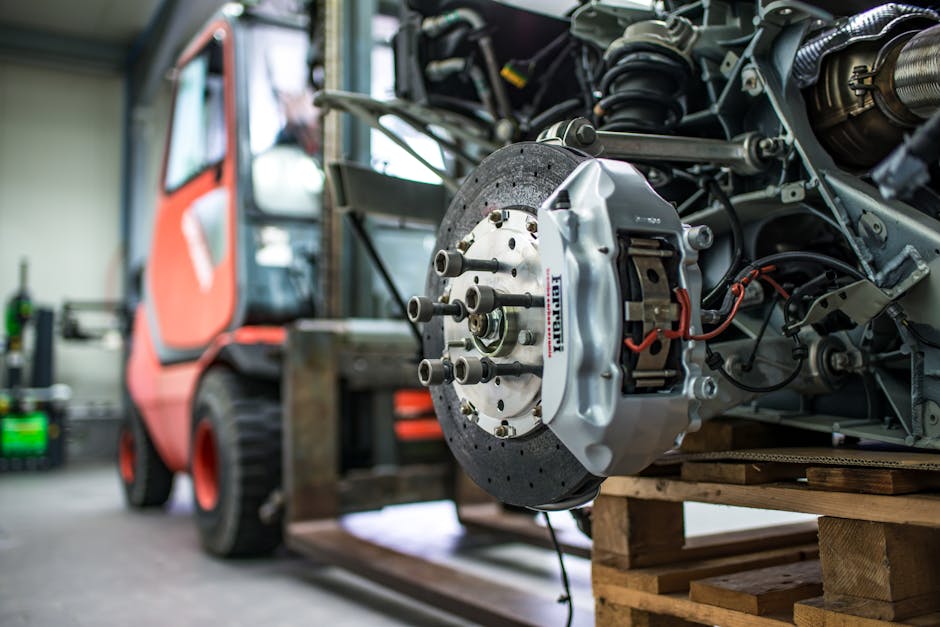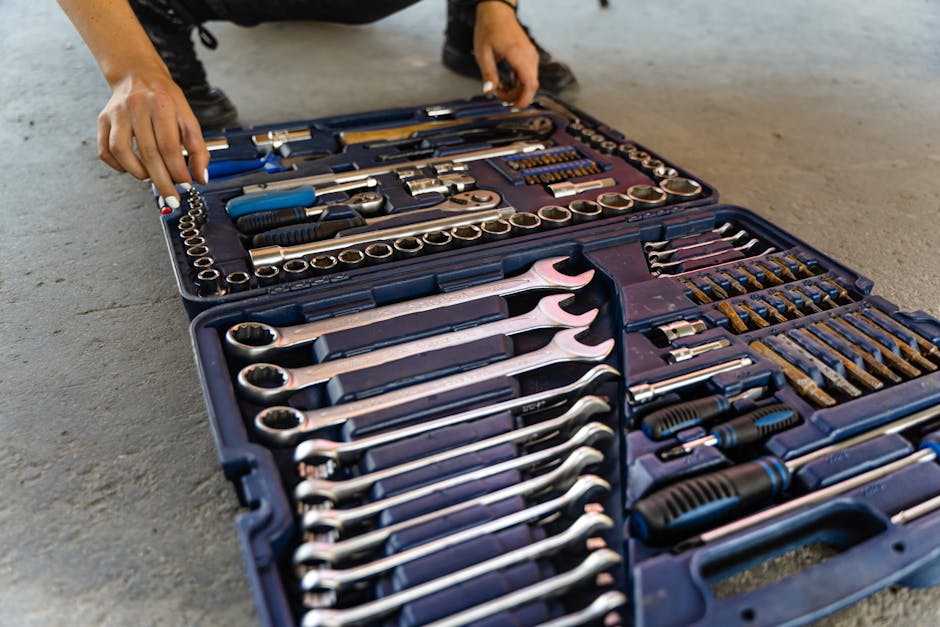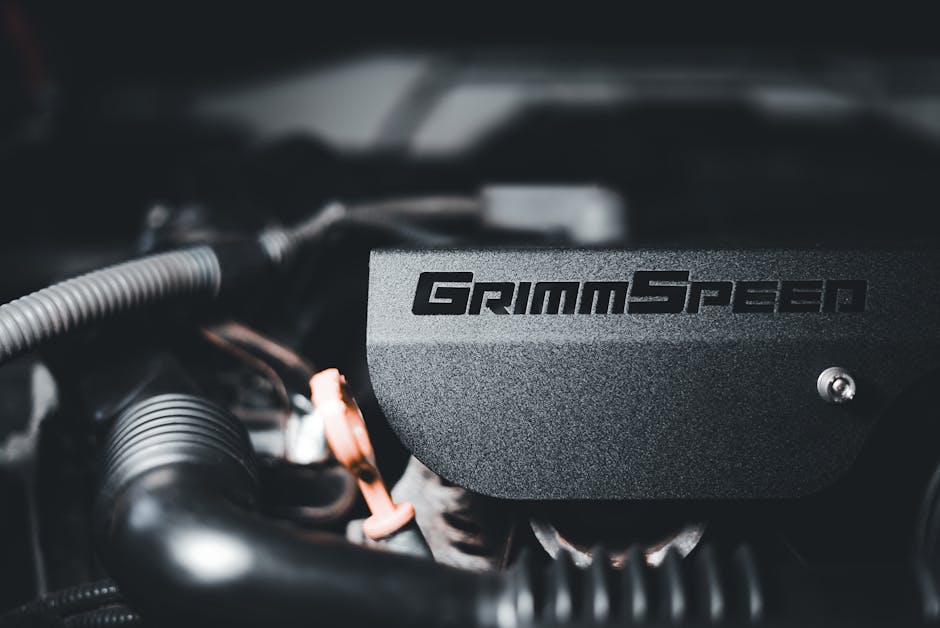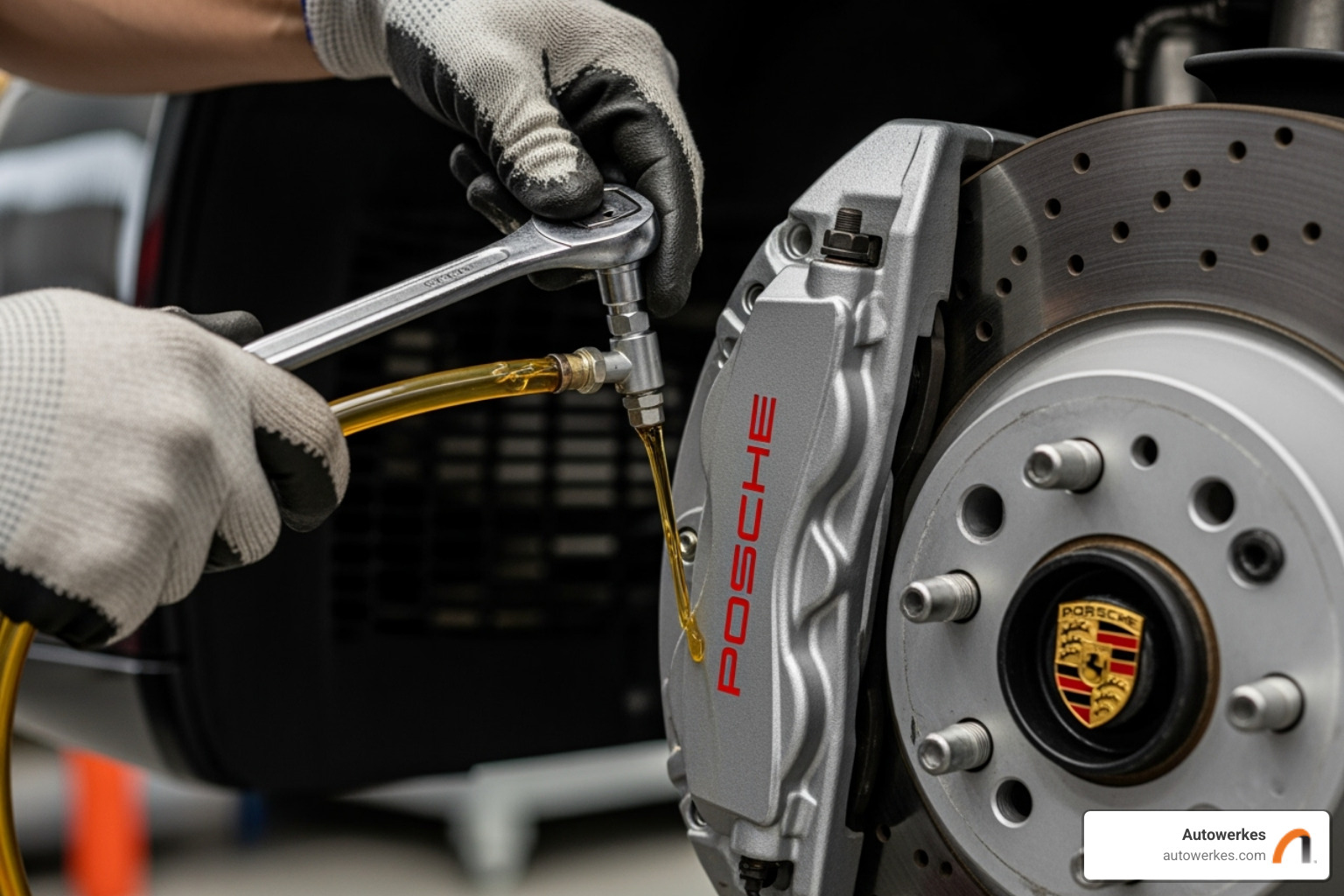BMW Brake Replacement Costs Uncovered – Pads, Rotors, and Your Wallet

Understanding BMW Brake Replacement Costs
BMW brake pad and rotor replacement cost varies widely depending on several factors, but understanding these costs is essential for proper maintenance planning.
Quick Answer: BMW brake service costs typically include:* Front brake pads: $150-$450 per axle* Rotors: $300-$750 for all four rotors* Labor: $88-$150 per axle* Total cost range: $400-$1,800+ depending on model, parts quality, and service location
When you own a BMW, maintaining its braking system isn't just about safety—it's about preserving the performance and driving experience that made you choose a premium vehicle in the first place.
As one BMW owner in our research noted: "I was quoted $2,569 for a complete front brake replacement on my 2019 M2 Competition at the dealer, but found an independent shop that would do it for $1,675." This price difference highlights why understanding your options matters.
The cost variations stem from several key factors:
- Vehicle model and trim (M-series costs more than standard models)
- Service location (dealership vs. independent vs. DIY)
- Parts quality (OEM vs. aftermarket)
- Additional components (sensors, hardware, fluid)
Many BMW owners are surprised to learn that front brake pads typically wear out between 30,000-60,000 miles, while rear pads may last 50,000-80,000 miles. This staggered wear pattern often means you'll need to budget for different service intervals for front and rear brakes.
At Autowerkes, we believe in transparent pricing and helping you understand exactly what you're paying for when it comes to your BMW's brake service.

Bmw brake pad and rotor replacement cost terms made easy:- bmw auto repair- bmw car maintenance- bmw mechanics in my area
Why Your BMW's Brakes Deserve Attention
Your BMW's braking system is an engineering marvel designed to deliver both safety and performance. When you press the brake pedal, you're activating a sophisticated system that converts kinetic energy into heat through friction. This process relies heavily on two main components: brake pads and rotors.
Over time, this friction causes inevitable wear. Brake pads, which contain the friction material, gradually thin out. Meanwhile, rotors can develop uneven surfaces, warping, or scoring. These wear patterns don't just compromise safety—they affect your BMW's performance and driving experience.
A properly maintained braking system ensures:- Optimal stopping distance (critical in emergency situations)- Smooth, vibration-free deceleration- That signature BMW responsive pedal feel- Prevention of more expensive damage to related components
As one BMW technician we spoke with explained, "When customers delay brake service to save money, they often end up paying more for additional repairs like caliper rebuilds or even wheel bearing replacement due to excessive heat damage."
What Drives the Price of Your BMW Brake Job
Understanding the factors that influence BMW brake pad and rotor replacement cost helps you make informed decisions about your vehicle's maintenance. Let's break down the key elements that determine what you'll pay.

Model, Trim, and Brake Package Matter
Your BMW's specific model makes a world of difference when it comes to brake service costs. Think of it like buying shoes - the basic models are affordable, while the premium performance versions come with a matching price tag.
If you're driving a standard 3-Series or X3, you're in luck. These models typically feature conventional single-piston calipers with standard-sized rotors, making them the most budget-friendly to service. Move up to a BMW with a sport package, and you'll notice larger brake components designed for improved performance - and yes, they cost more to replace.
The real jump comes with M-Performance models like the M3, M4, and M5. These performance beasts come equipped with multi-piston calipers and larger-diameter rotors that can significantly increase your replacement costs. And if you're one of the lucky few with carbon-ceramic brake packages? Well, be prepared to invest substantially more when service time comes around.
Even your wheel size plays a role. I recently spoke with an X5 owner who was shocked by his $2,900 quote for front brakes until he realized his M Sport package came with much larger brake components than the standard model. Those beautiful 21-inch wheels require larger-diameter rotors, which naturally cost more than the rotors on a standard 3-Series with 18-inch wheels.
Parts Quality – OEM vs Aftermarket
One of the biggest decisions affecting your BMW brake pad and rotor replacement cost is choosing between original or aftermarket parts.
OEM parts are exactly what BMW installed at the factory. They offer perfect fitment, typically include the brake wear sensors, and come with robust warranties. They're also ideal for lease returns since they maintain your vehicle's value. The downside? You'll pay a premium for that peace of mind.
On the flip side, aftermarket options offer tremendous variety. From budget-friendly basics to high-performance upgrades, these parts generally cost 20-40% less than their OEM counterparts. Quality varies widely, though, which is why many BMW enthusiasts opt for what technicians call "OEM equivalent" parts from respected manufacturers like Zimmermann, Brembo, or Akebono.
I remember chatting with a customer who found the perfect middle ground: "I purchased Zimmermann coated rotors and Hawk HPS pads for $600 shipped and paid $400 labor at an independent shop—less than half the dealer quote while maintaining excellent braking performance."
Interestingly, scientific research on brake materials shows that premium aftermarket pads can sometimes outperform OEM pads in specific areas like reduced noise or dust, though OEM pads typically provide the most consistent overall performance.
Labor Rates: Dealer vs Independent vs Mobile vs DIY
Where you choose to have your brake work performed might impact your wallet even more than the parts themselves.
Dealership service comes with the highest labor rates, typically $150-250 per hour. You're paying for factory-trained technicians, the latest diagnostic equipment, and original parts with full warranty. Many dealers sweeten the deal with complimentary services like car washes or multi-point inspections.
Independent BMW specialists like us at Autowerkes offer a compelling alternative. With moderate labor rates (typically $100-150 per hour) and technicians who often came from dealerships, you get specialized BMW knowledge without the premium pricing. We're flexible with parts options and pride ourselves on providing more personalized service than the big dealerships.
If budget is your primary concern, general repair shops charge lower labor rates (typically $80-120 per hour). Just be aware that their BMW-specific expertise varies widely, and what seems like a bargain might take longer if they're less familiar with your vehicle's systems.
For the ultimate in convenience, mobile mechanics bring the service to your driveway or office parking lot. This option has been growing in popularity around Huntington Beach, offering competitive rates with the added benefit of not having to arrange transportation while your car is in the shop.
The most cost-effective option? DIY brake replacement eliminates labor costs entirely. The trade-off is your time (expect 3-6 hours for a complete job), the need for specialized tools, and the learning curve if you're new to BMW brake systems. Many BMW enthusiasts enjoy the satisfaction of working on their own vehicles, but it's definitely not for everyone.
At Autowerkes in Huntington Beach, we position ourselves as the sweet spot between dealership expertise and independent shop value. Our BMW-certified technicians understand the unique requirements of your vehicle while offering more personal service and transparent pricing than you'll typically find at the dealership.
BMW Brake Pad and Rotor Replacement Cost Breakdown
Let's talk dollars and cents—what will your BMW brake service actually cost? As a BMW owner myself, I know how frustrating it can be to get vague estimates. Let's pull back the curtain on BMW brake pad and rotor replacement cost with real numbers from real shops.
BMW brake pad and rotor replacement cost at Dealers vs Independent Shops
The gap between what you'll pay at the dealer versus an independent shop might surprise you. After talking with dozens of BMW owners and technicians, here's what we've found:
At the dealership, expect to pay a premium. Front brake service with new pads and rotors typically runs $900-1,500, while rear service costs around $800-1,300. Going for the whole enchilada—all four corners—will set you back $1,700-2,800. Don't forget those little brake wear sensors at $35-50 each, plus $150-250 for a brake fluid flush.
Independent BMW specialists like us at Autowerkes offer substantial savings without cutting corners. Front brake service typically costs $600-900, rear service runs $550-850, and a complete brake job comes in at $1,150-1,750. Sensors are more reasonable at $25-40 each, with fluid flushes in the $100-180 range.
I'll never forget what one of our customers told us: "The dealer quoted me $900 for front pads, rotors, and sensors on my 2007 335i, and $1,800 to do both front and rear. I found an independent shop that did the entire job for just over $1,000 using OEM-equivalent parts."
The labor time is fairly consistent across shops—about 1.5-2 hours for front or rear service, and 3-4 hours for a complete brake job. At Autowerkes, we believe in transparency, so we always provide itemized estimates that clearly separate parts, labor, and any additional services.
DIY bmw brake pad and rotor replacement cost & Parts List
If you're handy with tools and enjoy weekend projects, DIY brake work can save you serious cash. Here's what you'll need to budget for:
OEM front brake pads run $80-150 per axle, while rear pads cost $70-130. Front rotors vary widely from $130-300 per pair depending on your model, with rear rotors slightly cheaper at $100-250 per pair. Add in brake sensors ($10-35 each), premium brake fluid ($15-30), and sometimes hardware/clips ($10-30).

The tool list is non-negotiable for safety and proper installation: floor jack and jack stands (never skimp here!), lug wrench, torque wrench (essential for proper installation), brake caliper tool, fluid catch container, various sockets and wrenches, brake cleaner, anti-seize compound, and safety gear.
One DIY enthusiast told me: "I replaced all four corners with premium aftermarket parts for under $800 in materials. The same job was quoted at $2,200 by the dealer. It took me about 3 hours with a friend helping."
Popular online sources like FCP Euro, ECS Tuning, and Rock Auto offer excellent options at competitive prices. If you're considering this route, I strongly recommend watching model-specific videos first—the process isn't complicated, but details matter, especially when it comes to torque specs and brake fluid handling.
How Often Should Pads & Rotors Be Changed?
Understanding replacement intervals helps you budget for future BMW brake pad and rotor replacement costs:
Front pads typically last 30,000-60,000 miles, while rear pads often go 50,000-80,000 miles (yes, rears actually last longer on most BMWs due to weight distribution and brake bias). Rotors usually make it 50,000-70,000 miles and are often replaced every second pad change.
These numbers swing dramatically based on your driving style (lead-footed drivers can burn through pads twice as fast), environment (city stop-and-go versus highway cruising), vehicle weight and power (M models eat brakes faster), and material quality (premium pads generally outlast budget options).
The good news? Your BMW has electronic brake pad wear sensors that trigger a dashboard warning when pads reach approximately 3-4mm thickness. No guesswork needed!
According to research on brake replacement frequency, many owners replace pads too early. As one of our technicians often tells customers: "When the light comes on, you still have 1,000-2,000 miles of safe driving remaining. Schedule service soon, but there's no need to drive directly to a shop in a panic."
Here in Huntington Beach, we've noticed our unique driving conditions—coastal humidity combined with stop-and-go traffic—can affect brake longevity. That's why we recommend brake inspections during regular service visits, even if that warning light hasn't appeared yet.
Signs You Need Brake Service Now
Your BMW will tell you when it needs brake attention, if you know what to listen for and feel:
Listen for high-pitched squealing (often the wear indicator making contact), grinding or growling noises (indicating metal-on-metal contact—this is urgent!), or clicking and rattling (possibly loose components).
Feel for vibration in the brake pedal, steering wheel shake during braking, longer stopping distances, pulling to one side, or a soft/spongy pedal.
Look for the dashboard brake warning light, visible scoring on the rotors, thin brake pad material (less than 3mm), or uneven wear patterns.

One customer shared with me: "I noticed my steering wheel shaking slightly when braking between 40-30 mph. The mechanic measured my rotors and found significant run-out—0.45mm compared to the 0.04mm specification. Waiting longer would have damaged other components."
Speaking of measurements, BMW rotors have a minimum thickness specification stamped on them (often around 28.4mm for many models). If your rotors measure close to this minimum, it's replacement time.
At Autowerkes, every service includes a thorough brake inspection—not just pad thickness and rotor condition, but also caliper movement, fluid condition, and hose integrity. This comprehensive approach catches potential issues before they become expensive problems.
Smart Ways to Save Without Cutting Corners
You can reduce your BMW brake pad and rotor replacement cost without compromising safety or performance:
Time your service strategically. Many shops (including ours) offer seasonal brake specials, especially before winter. New customer discounts are common, and bundling brake service with other maintenance often reduces overall labor costs.
Choose parts wisely. OEM-equivalent parts from reputable manufacturers offer excellent value. Some online retailers offer lifetime warranties on brake components. Quality rebuilders provide reconditioned calipers at significant savings.
Prioritize preventative maintenance. Regular brake fluid flushes every 2-3 years extend component life significantly. Addressing minor issues before they cause collateral damage saves money in the long run. Having rotors machined (if they're above minimum thickness) instead of replaced can be economical.
Explore service alternatives. Independent BMW specialists typically save you 30-40% compared to dealerships. Some shops welcome customer-supplied parts, and mobile mechanics often have lower overhead and competitive rates.
Don't delay necessary service. The most expensive brake job is the one you postponed too long. What could have been just a pad replacement becomes pads, rotors, calipers, and sometimes even wheel bearings or suspension components.
As one of our master technicians likes to say, "Brakes might be expensive, but they're still cheaper than accidents."
At Autowerkes in Huntington Beach, we work hard to make brake service more affordable through seasonal specials, service bundles, and a parts sourcing program that passes our wholesale discounts directly to you. After all, we want to keep you and your BMW on the road safely for many miles to come.
Conclusion
Understanding BMW brake pad and rotor replacement cost empowers you to make informed decisions about your vehicle's maintenance. While the initial price tag might seem high compared to non-luxury vehicles, proper brake maintenance is an investment in both safety and the long-term value of your BMW.

When I talk with BMW owners in our Huntington Beach shop, I often remind them that brakes aren't just another maintenance item – they're the most critical safety system on your vehicle. Think about it: all that precision German engineering doesn't matter much if you can't stop reliably!
Your BMW's braking system is a masterpiece of engineering that deserves proper care. The model you drive, the parts you choose, and where you have service performed all play significant roles in what you'll pay. Whether you opt for dealer service with its comprehensive warranty coverage, visit an independent specialist like us at Autowerkes for that sweet spot of expertise and value, or tackle the job yourself in your garage, each approach offers different advantages.
Timing matters too. Following BMW's recommended inspection intervals isn't just about preventing that annoying brake warning light – it's about catching wear before it cascades into more expensive problems. I've seen too many drivers try to squeeze an extra few thousand miles out of worn pads only to end up replacing rotors, calipers, and sensors instead of just the pads.
Quality parts make a real difference in both performance and longevity. Whether you choose OEM components for that factory-perfect feel or premium aftermarket parts for potentially better value, investing in quality today means you won't be doing the job again prematurely.

At Autowerkes, we've built our reputation on providing BMW owners throughout Huntington Beach, Newport Beach, Fountain Valley, and greater Orange County with dealership-level expertise at more reasonable rates. Our BMW-certified technicians understand the unique requirements of every model from the nimble 2-Series to the flagship 7-Series and X7.
We believe maintaining your BMW's braking system preserves more than safety – it maintains the precise, confident driving experience that makes BMW ownership special. That satisfying pedal feel, the progressive stopping power, the absence of noise or vibration – these qualities define the BMW driving experience as much as acceleration or handling.
Ready to give your BMW the brake service it deserves? Schedule your service appointment with our team today. We'll provide a transparent estimate, explain your options, and deliver service that keeps your Ultimate Driving Machine stopping as impressively as it goes.
For more information about maintaining your BMW, browse our resources on BMW auto repair or simply give us a call. We're always happy to answer questions about your specific model's brake service needs – no appointment necessary for good advice!

.svg)




